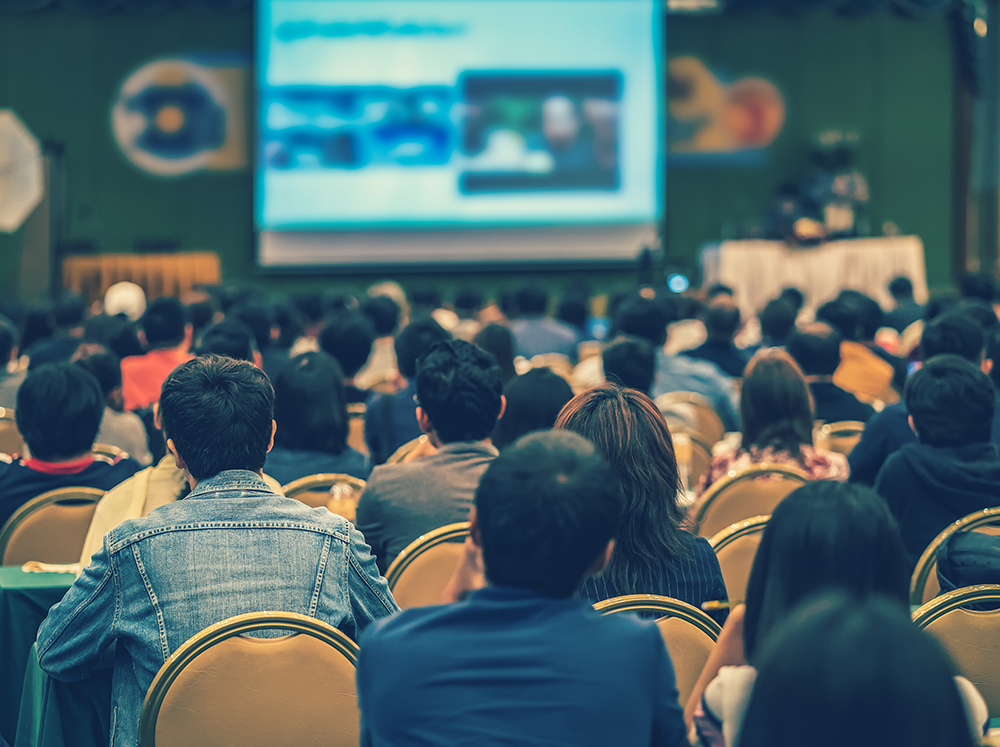



| S.No | Name of the Speaker | Topic | Date | Participants |
|---|---|---|---|---|
| 1 | Dr. J Leela Krishna, Lecturer, AMBO University, Ethiopia. | Personality Development and Career building | 30-08-2018 | ALL I B.Tech Students |
| 2 | P G SASTRY | Teaching Methodolgy | 30-07-2017 | Faculty |
| 3 | Gampa Nageswara Rao | Campus to Corporate | 07-09-2017 | ALL I B.Tech Students |
| 4 | P.Bhuvana Chandra(Skill Development Classes) | Calligraphy | 24-07-2015 | ALL I B.Tech Students |
| 5 | Dr. V Ravindranadh, , Prof & Head, Dept of Mathematics, JNTU Kakinada Dr. P Dakshinamurthy, Dept. of Physics JNTU Kakinada | Quantum Mechanics | 24-10-2016 | ALL I B.Tech Students |
| 6 | Dr M Krishna Murthy | Green Chemistry | 29-05-2013 | ALL I B.Tech Students |
| 7 | S.K.Khaseem A.Apparao | Electrical energy calculations and EDC | 22-01-2014 | ALL I B.Tech Students |
| 8 | Dr P Dhakshina Murthy , Prof. of Physics,JNTU Kakinada | Physics of semi conductors | 29-03-2012 | ALL I B.Tech Students |
| 9 | Dr. V Ravindranadh, Prof & Head, Dept of Mathematics, JNTU Kakinada | Applications of Partial Differential Equations in Engineering | 29-03-2012 | ALL I B.Tech Students |
| 10 | Mr. K Ravindra | Nano Materials | 29-05-2013 | ALL I B.Tech Students |
| 11 | Prof P Dhakshina Mutrhy Dept of Physics JNTU Kakinada | Physics of Semiconductors | 29-03-2012 | ALL I B.Tech Students |
| 12 | Dr V Ravindranath Prof & Head, Dept of Mathematics, JNTU Kakinada | Applications of Partial Differential Equations in Engineering | 29-03-2012 | ALL I B.Tech Students |
| 13 | Prof. T Viswanatha Rao Chairman, PG Board of studies, A.U | Art of Communication | 06-12-2009 | ALL I B.Tech Students |
| 14 | Prof P Dhakshina Mutrhy Dept of Physics JNTU Kakinada | Basic Principles of Quantum Physics | 06-12-2009 | ALL I B.Tech Students |
| 15 | Gampa Nageswara Rao | Inspiring Goals | 14-08-2010 | Department Faculty |
| 16 | Prof. D J P N Reddy Special Officer, AUMNS PG Center, Kakinada | Communication Skills - Role of English as Global Medium | 15-11-2007 | ALL I B.Tech Students |
| 17 | Prof P Dhakshina Mutrhy Dept of Physics JNTU Kakinada | Physics of Semiconductors | 05-04-2008 | ALL I B.Tech Students |
| S.No | Topic | Beneficiaries | Date |
|---|---|---|---|
| 1 | Guest lecture on Personality Development & Communication Skills | All Students of I B.Tech | 20-08-2019 |
| 2 | Guest lecture on Communication Skills | All Students of I B.Tech | 19-02-2019 |
| 3 | Personality Development and Career building | All Students of I B.Tech | 30-08-2018 |
2014 – 2019
| S.No | Name of the Speaker | Topic | Date |
|---|---|---|---|
| 1 | Syed Noor Mohammad Shakir, CEO, Empower Training Solutions, Hyderabad | The Seven Secrets of Success | 04-02-2019 |
| 2 | Rajesh Murthy, Training Systems LLP | The Day your life Turns Around | 07-01-2019 |
| 3 | P.Bhuvana Chandra(Skill Development Classes) | Calligraphy | 03-01-2019 to 05-01-2019 |
| 4 | Sri Ch Yuva Raju | Construction Planning | 30-12-2018 |
| 5 | B Suresh, Asst. Prof., Department of ECE, Amrita Sai Institute of Science& Technology | SOLDERING PRACTICE | 27-12-2018 to 29-12-2018 |
| 6 | Dr Elongo Department of Mechanical, Amrita Sai Institute of Science& Technology | ENGINE ASSEMBLING & DESSEMBLING | 27-12-2018 to 28-12-2018 |
| 7 | K Gopal Reddy, Department of CSE, Amrita Sai Institute of Science& Technology | PC ASSEMBLING& DESSEMBLING | 27-12-2018 to 30-12-2018 |
| 8 | Dr Anand Chandu Lal, Retired Professor, JNTU Kakinada | Yogic Science | 09-08-2018 |
| 9 | Dr K V S G Murali Krishna, Principal, UCEN, JNTU Narasaraopeta. | Personality Development and Goal Setting | 16-08-2018 |
| 10 | Dr K Sai Manoj, CEO, IGT | Ethical Hacking | 22-12-2017 |
| 11 | Nageswara Rao, System Admin | PC Assembling and Repair | 21-10-2016 |
| 12 | Organized by NSS unit of ASIST | Mega blood Donation Camp | 12-08-2016 |
| 13 | Organized by NSS Unit, ASIST in association with Lions Club of Rural, Vijayawada. | Blood Donation Camp | 15-10-2015 |
| 14 | DENTAL CAMP-NSS UNIT | DENTAL CAMP-NSS UNIT | 18-08-2015 |
| 15 | P.Bhuvana chandra | Calligraphy | 24-07-2015 |
| 16 | Plantation-NSS Unit | PLANATATION-NSS UNIT | 15-07-2015 |
| 17 | Prof.T.Vishwanadha Rao | Communication skills | 02-12-2014 |
| 18 | Dr.M.V.Ramachandra rao Mr.N.Bhanumurthy Mr.M.Nataraj | Applications 0f physics and chemistry in Engineering | 27-02-2015 |
| 19 | Mr.Johnson | Fire and safety | 20-11-2014 |
2019 – 2020
| S.No | Name of the Speaker | Topic | Date |
|---|---|---|---|
| 1 | Dr. K Sai Manoj, CEO Innogeecks Technologies | Python programming | 06-11-2019 |
| 2 | Dr. K Sai Manoj, CEO Innogeecks Technologies | Cloud computing | 08-11-2019 |
| 3 | Dr. K Sai Manoj, CEO Innogeecks Technologies | Ethical hacking | 09-11-2019 |
2018 – 2019
| S.No | Name of the Speaker | Topic | Date |
|---|---|---|---|
| 1 | Syed Noor Mohammad Shakir, CEO, Empower Training Solutions, Hyderabad | The Seven Secrets of Success | 04-02-2019 |
| 2 | Rajesh Murthy, Training Systems LLP | The Day your life Turns Around | 07-01-2019 |
| 3 | P.Bhuvana Chandra(Skill Development Classes) | Calligraphy | 03-01-2019 TO 05-01-2019 |
| 4 | Sri Ch Yuva Raj | Construction Planning | 30-12-2018 |
| 5 | B Suresh, Asst. Prof | Soldering Practice | 27-12-2018 TO 29-12-2018 |
| 6 | Dr Elongo Department of Mechanical | Engine Assembling, Dessembling | 27-12-2018 TO 28-12-2018 |
| 7 | Dr Gopal Reddy,Department of CSE | PC Assembling, Dessembling | 27-12-2018 TO 28-12-2018 |
| 8 | Dr Anand Chandu Lal, Retired Professor, JNTU Kakinada | Yogic Science | 09-08-2018 |
| 9 | Dr K V S G Murali Krishna, Principal, UCEN, JNTU Narasaraopeta | Personality Development and Goal Setting | 16-08-2018 |
| 10 | Dr K Sai Manoj, CEO, IGT | Ethical Hacking | 22-12-2017 |
| S.No | Name of the Faculty | Title of the Paper | Name of the Journal | ISSN No. |
|---|---|---|---|---|
| 1 | Dr A Vanaja | Facile Magnesium doped Zinc Oxide Nanoparticle Fabrication and Characterization for Biological Benefits | International Journal | Vol.15, No. 4, Dec 2019 |
| 2 | Mr. D Balaji | Copped Doped Zinc Oxide Nanoparticles for the facbrication of white LEDs | International Journal | Volume 55, No 3, PP481-486 ISSN 2070-2051-2019 |
| 3 | Mrs. Sk Gousia | Copped Doped Zinc Oxide Nanoparticles for the fabrication of white LEDs | International Journal | Volume 55, No 3, PP481-486 ISSN 2070-2051-2019 |
| 4 | Mr K John Wesley | Journal of English Language and Literature | International Journal | 2019 |
2019 – 2020
| S.No | Regd. No | Name of the Student | Name of the event | Organized / Conducted | Prize/Participation |
|---|---|---|---|---|---|
| 1 | 19AJ1A0490 | M. Raaja Haneela | Elocution Competition | Central Bank of India | I Prize |
| 2 | 19AJ1A04I2 | Y Nikhitha | Elocution Competition | Central Bank of India | Consolation Prize |
| 3 | 19AJ1A0307 | Ch Venkata Naga Sai | Kabaddi | Vignan College, Vizag | I Prize |
| 4 | 19AJ1A0320 | N Rakesh | Kabaddi | Vignan College, Vizag | I Prize |
| 5 | 19AJ1A04I2 | Y Nikhitha | Elocution Competition | ASIST Women Empowerment Cell on Womens Day | I Prize |
2018 – 2019
| S.No | Activity | Details of the speaker |
|---|---|---|
| 1 | Advanced programme, Ethical hacking | Dr K. Sai Manoj CEO, Innogeecks Technologies |
| 2 | Special programme "C" and "Code Tantra" | Special programme “C” and “Code Tantra” |
| 3 | CRT Programme Training on Communication Skills | CRT Programme Training on Communication Skills |
A special program called “CODE TANTRA” is designed to encourage student’s active learning. The most innovative technical skilling online platform for C, C++, Java, Selenium Hadoop, etc. is introduced to provide hands-on experience. It’s an e-learning platform. This unique intelligent interactive learning platform guarantees that the learner will be able to write code on their own. The platform handholds the students by teaching numerous drilling exercises.
| S.No | Activity | Details of the speaker |
|---|---|---|
| 1 | Advanced programme, Ethical hacking | Dr K. Sai Manoj CEO, Innogeecks Technologies |
| 2 | Special programme "C" and "Code Tantra" | Special programme “C” and “Code Tantra” |
| 3 | CRT Programme Training on Communication Skills | CRT Programme Training on Communication Skills |